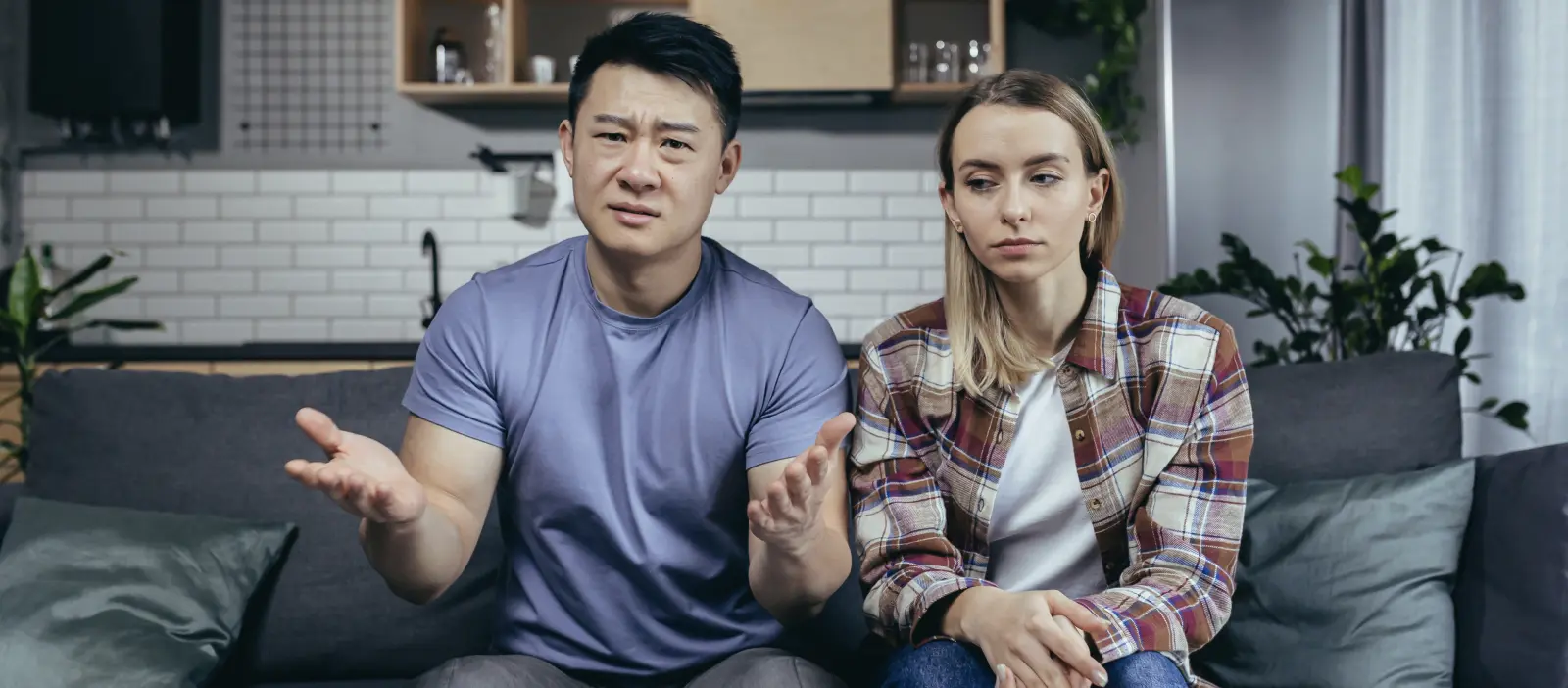PTSD can affect relationships vastly. The individual with PTSD is most likely experiencing a dysregulated mood, feels numb to their external world, feels different, has difficulty with sleep, experiences flashbacks and maybe nightmares has hyperarousal, hypersensitivity, and behavioral reenactments as well as avoidance and paranoia. In some cases, there can be self-destructive, impulsive, or risky behavior along with substance abuse.
If a person experiences trauma symptoms, it is going to affect the way they act and react to others and how others respond to them. With this action and reaction, a reciprocal maladaptive cycle can form causing harm to a relationship. Mistrust and problem-solving deficits set in for the survivor and engagement in criticism, defensiveness, contempt, and stonewalling become protective factors on repeat and ultimately ends relationships (2).
Trauma Survivors Reactions
Following a traumatic event, many survivors may feel symptoms that will dissipate, and in time the survivor returns to the previous level of closeness with their loved ones that they engaged in prior to the trauma. Though 5-10% of survivors develop PTSD and have longer-lasting relational issues.
Symptoms people with PTSD experience cause them to avoid usually enjoyable activities and for the survivor’s loved ones, it often means they withdraw from those activities as well. With PTSD symptoms often including nightmares, less rested sleep for both occur. Anger and impulsiveness creep in for individuals suffering from PTSD.
As an attempt to suppress feelings of anger and angry actions, the survivor may avoid interacting and avoid intimacy altogether. Verbal and physical violence can occur as well and often escalates when drugs and alcohol are used to cope (2).
Opposite reactions occur too. Instead of the individual with Post Traumatic Stress Disorder being avoidant, angry, and pushing relationships away, they may become more dependent, paranoid, and require frequent soothing and reassurance from not only partners, family members, and friends, but on their health care professionals as well (2).
Loved One’s Reactions
When loving someone with PTSD, or any mental health disorder, feelings can seem confusing. One minute the loved one may feel anger, and resentment and the next feel pressured, tense, and controlled. It may feel like as the loved one you are helping, and the support that is being given is needed, to the next moment the loved one feeling pushed away. These are common reactions, and it can feel almost as if the loved one is experiencing the trauma themselves (2).
PTSD and Relationships
With the reactions of the person with PTSD and the reactions of the loved one(s), it makes it hard to communicate effectively. It causes anxiety, like walking on eggshells, to do any connecting. (3)
- Intimacy declines emotionally and sexually. It becomes difficult to express feelings or even identify them. Interest in usually enjoyable activities declines, negative self-image occurs and detachment from others puts barriers up in the relationship. (3)
- Sexual Interest decline is more prominent if the complex trauma included sexual abuse. It may be more challenging to trust or feel safe around a partner. Though it may decline even if sexual abuse did not occur due to lack of intimacy – emotional connection. Other instances, the individual who experienced the trauma may react with more hypersexuality and have difficulties controlling impulses and identifying safe partners. Hypervigilance as a PTSD symptoms can cause difficulties in relaxing that can affect sexual interest. This can cause shame for the individual with PTSD and negative self-image. For the loved one, they may feel rejected and experience negative self-image too. (3)
- Communication can be a real challenge overall. Deficits in problem solving is a common PTSD symptom that causes communication misses. In addition, if a PTSD sufferer is withdrawing and avoiding, any attempt for communication is met with resistance. (3)
- Avoidance of possible triggers can be extremely isolating. Individuals with PTSD often avoid situations, people, or activities that remind them of the trauma. Partners, family members, and friends often feel helpless in these circumstances and can also feel lonely. (3)
- Attachment styles get disrupted with PTSD. Post Traumatic Stress Disorder has an individual feeling either detached and pushing others away or having an increased need to be taken care of or increased need to protect others. This can look demanding, smothering, dependent, and feels overwhelming. (3)
Communication Misses
The Four Horseman used by John and Julie Gottman of ‘The Gottman Institute’ (1) references the “the four horsemen of the apocalypse” that metaphors’ the end of times in the New Testament. The Gottman’s used it to describe communication styles that were researched to predict the ending of a relationship. They include the use of criticism, contempt, defensiveness, and stonewalling. Criticism is verbally attacking personality or character; contempt is attacking sense of self with an intent to insult or abuse; defensiveness is victimizing yourself to ward off a perceived attack and reverse the blame; withdrawing to avoid conflict and convey disapproval, distance, and separation (1).
These are important to bring up because if these communication misses can be identified when dealing with PTSD and affects it has on a relationship, they can be counteracted with a gentle start up in instead of criticism, building appreciation instead of contempt, taking responsibility instead of defensiveness, and instead of stonewalling self-sooth such as taking a break. Often criticism and defensiveness are the widest used communication misses and they become a cyclical process that goes round and round that then invites more intrusive dysfunctional communication (1).
What Can Be Done
Individual and group therapy can be invaluable. PTSD impacts relationships. If all parties can commit to change and individual and group therapy, the much-needed progress can have an opportunity. Everyone effected by the PTSD needs the chance to heal and get the support that they need. It’s important to find PTSD treatment with professionals that provide trauma-informed care.
Resources:
- https://www.gottman.com/blog/the-four-horsemen-recognizing-criticism-contempt-defensiveness-and-stonewalling/
- https://www.ptsd.va.gov/family/effect_relationships.asp#:~:text=The%20symptoms%20of%20PTSD%20can,that%20may%20sometimes%20harm%20relationships.
- https://psychcentral.com/ptsd/relationships#when-your-partner-has-ptsd




